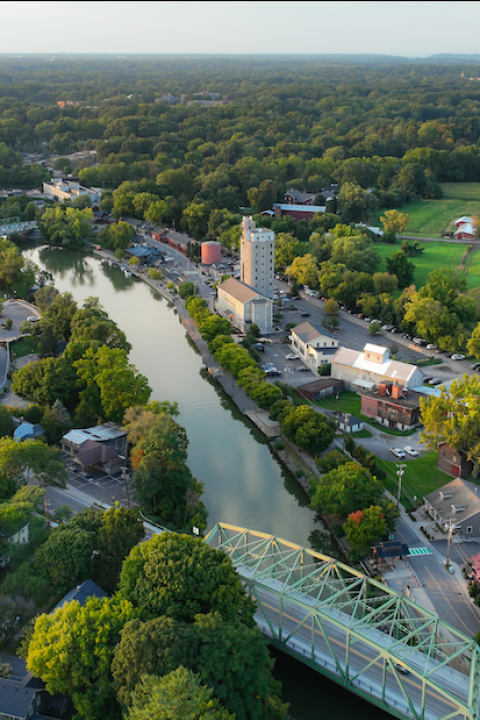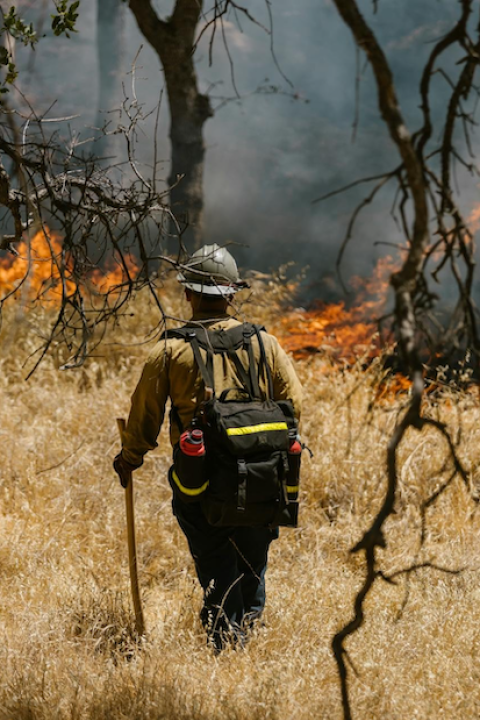
A graduation ceremony at Harvard University.
The late comic George Carlin once said, “You don’t need a formal conspiracy when interests converge.”
A recent assessment of the educational background of world leaders underscores Carlin’s quip, and it provides at least one explanation for global leaders’ consistent inaction regarding climate change: They all went to the same schools.
The new project by youth campaign group Mock COP found that the 30 top universities in the world have not fostered the leadership skills and civic engagement necessary for our world leaders to navigate the impending ecological crisis.
Entitled "1.5 Degrees," referencing the solemn recommendation from climate scientists that the planet must not warm beyond 1.5 degrees Celsius to prevent catastrophe, the project demonstrates that current world leaders are birds of a feather — an idle feather at that.
Just as Carlin said, the converging interests of world leaders — who share common backgrounds, educations, worldviews, priorities and goals — has resulted in an informal conspiracy of inertia.
Top universities failed leaders, and leaders fail us
“The people with the privilege to study at the so-called ‘top’ universities, and go on to become key decision-makers across society, are being educated at institutions that do not act in the public good and do not ensure their graduates are prepared to lead a more just and sustainable future," the 1.5 Degrees website reads.
The project includes a ranking that grades the world’s top universities on how their engineering, law, economics, politics and health courses, which are traditionally chosen by decision-makers, align with the actions needed to tackle the climate crisis.
The ranking of top universities includes Yale, Cambridge, Oxford and Stanford Universities, as well as the Massachusetts Institute of Technology and Imperial College London. No institution received a favorable grade. MIT, as well as Beijing's Tsinghua and Peking Universities, scored the worst at preparing their graduates for a low-carbon future.
The team of young activists at Mock COP ultimately concluded that the most educated among us are often the worst enablers of climate destruction. They further found that critical courses pertaining to environmental citizenship are “influenced by large corporates working against the advice of the world’s leading climate scientists."
By and large, leaders around the world are consistent in their approach to climate change — they don’t approach it at all. This can’t come as a surprise, though, once the common education factor is acknowledged. For example, Mock COP found that 20 current heads of state attended Harvard University. These schools shape their students’ worldviews, so if world leaders all went to the same few top universities, it is no wonder that they are acting in lockstep.
“World leaders consistently let us down at conferences like Davos, where they have the opportunity to create real, lasting change," said Josh Tregale, a mechanical engineering student and Mock COP campaign coordinator, in a statement — referring to the World Economic Forum's annual meeting earlier this month. "Had our leading decision makers undertaken university courses which effectively taught the facts of the climate crisis and instilled sustainable thinking, then they would understand the urgency and act accordingly. Instead they are uneducated on the facts and unprepared for climate leadership.”
This all adds up to world leaders are well-meaning and inept at best — and ill-intentioned and adept at worst. Neither is very reassuring, but now that the issue has been identified, Mock COP hopes to influence change.
Youth organizers at Mock COP push for curriculum reform to tackle climate change
Mock COP hopes this project will serve to influence curriculum reform and create more of an emphasis on civic duty and environmental engagement at these top universities. If the most exclusive and accomplished institutions begin to prioritize this sort of education, the rest of academia should follow suit.
The team expects this information to help climate-minded young people decide where to study, as many students may think twice about attending these top institutions after Mock COP’s report.
The planet is not dying from ignorant people making mistakes. It is dying from self-interested, highly educated people making deliberate decisions that prioritize profits over planet. It is time to start teaching the people who have the power to save the planet that saving the planet is not only in their best interest — it’s in their job description.
Image credit: Christian Lendl/Unsplash

Patrick is a freelance journalist who writes what the robots can't. Based in Syracuse, New York, Patrick seeks to uplift, inform, and inspire readers with stories centered on environmental activism, social justice, and arts and music. He enjoys collecting books and records, writing prose and poetry, and playing guitar.














